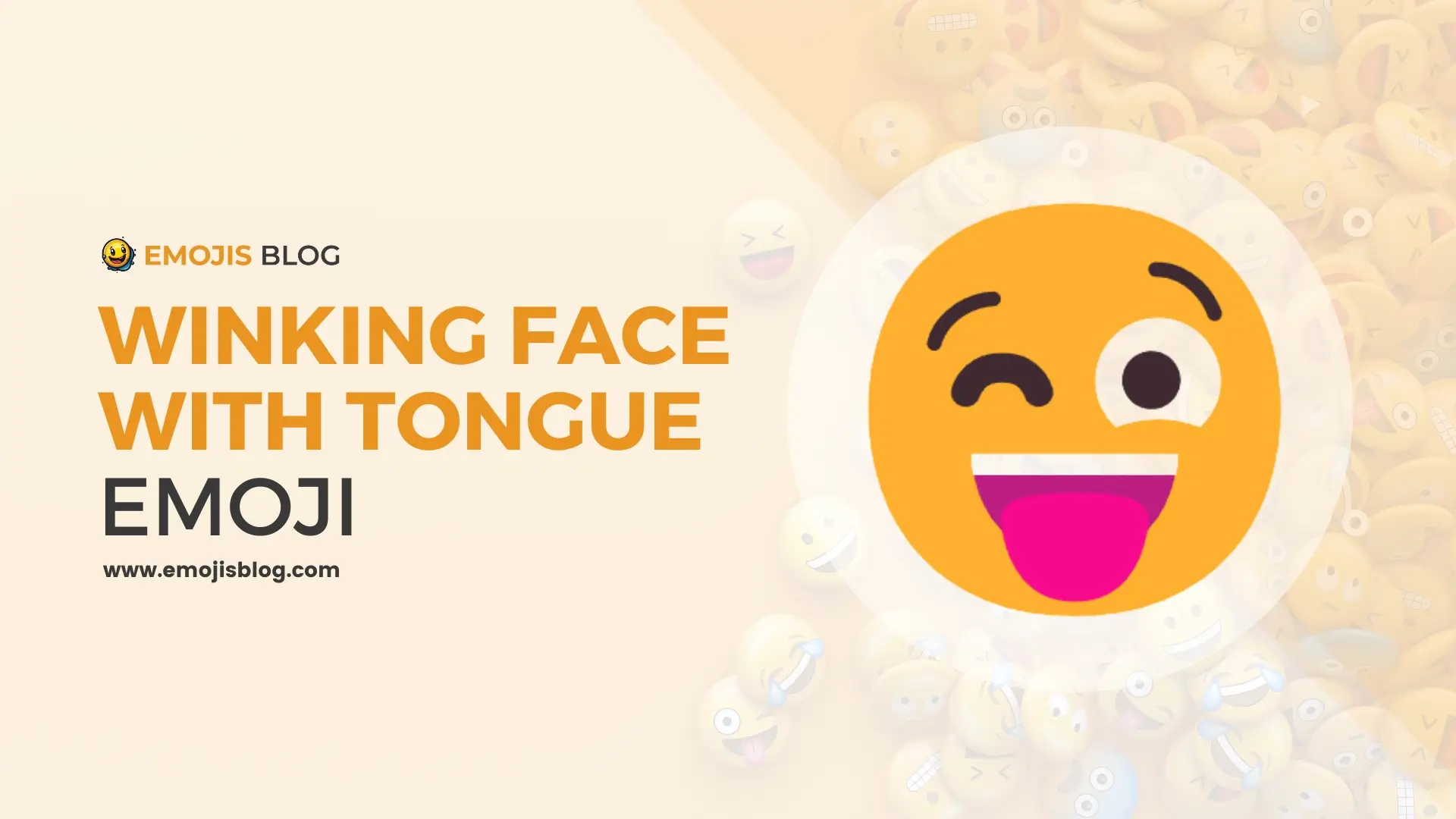What Does The Winking Face With Tongue Emoji Mean 😜
😜
What’s Winking Face With Tongue Emoji 😜?
The 😜 emoji, known as the “winking face with tongue,” embodies a playful and teasing expression, combining a cheeky wink with a tongue sticking out to convey a sense of fun, humor, or light-heartedness. It’s often used to indicate jesting or to add a playful tone to messages, suggesting that the sender is joking or not to be taken too seriously. This emoji can also flirtatiously signal amusement or a carefree attitude, making it a versatile choice for expressing joy, playfulness, or a casual, humorous approach to situations in digital communication.
Technical Information
| Attribute | Details |
|---|---|
| Emoji | 😜 |
| Description | Winking Face with Tongue |
| Unicode Version | 6.0 |
| Release Year | 2010 |
| Unicode Codepoint | U+1F61C |
| HTML Entity | 😜 |
| Shortcode | :stuck_out_tongue_winking_eye: (in some platforms) |
| Category | Smileys & Emotion |
| Subcategory | Face-Tongue |
| Keywords | Wink, tongue, joke, play, humor |
Understanding the 😜 Emoji: A Dive into Its Meaning and Usage
The winking face with tongue emoji, represented as 😜, is a digital icon that conveys a wide range of emotions and meanings, often associated with playfulness, humor, and teasing. This emoji combines the elements of a wink and a tongue sticking out, each of which adds a layer of meaning to the overall expression. In this article, we’ll explore the various interpretations of the 😜 emoji, its origins, and how it’s used in communication across different platforms and contexts.
Origins and Evolution
The 😜 emoji was officially included in the Unicode Standard in 2010, under Unicode 6.0, making it part of the first wave of emojis that were standardized for use across different operating systems and devices. Its inclusion was part of a broader effort to expand the range of expressions available for digital communication, allowing users to convey emotions and reactions that words alone might not fully capture.
Symbolism and Meaning
Playfulness and Humor
The primary interpretation of the 😜 emoji is one of playfulness and humor. It’s often used to indicate that a message should not be taken seriously or to add a light-hearted tone to a conversation. The wink suggests complicity or an inside joke, while the tongue sticking out is a universal gesture of teasing or playfulness.
Teasing and Joking
The 😜 emoji is commonly used to tease or joke with friends and family in a friendly manner. It can soften a sarcastic remark or add a playful challenge to a statement. In this context, it helps convey the nuance of jest that might otherwise be lost in text-based communication.
Flirting
In some cases, the 😜 emoji can have a flirtatious connotation, especially when used in conversations with romantic interests. The combination of a wink and the tongue sticking out can suggest a light-hearted, flirtatious intent, signaling interest without overt seriousness.
Usage Across Different Contexts
Social Media
On social media platforms, the 😜 emoji is frequently used in posts and comments to convey a fun, irreverent tone. It can add personality to captions, comments, and reactions, making them feel more personal and engaging.
Text Messaging
In text messaging, the 😜 emoji serves to ensure that the tone of the conversation remains light and friendly. It’s particularly useful in situations where the text might be interpreted in multiple ways, serving as a cue that the sender’s intent is playful or humorous.
Professional Communication
While the use of emojis in professional communication has become more accepted, the 😜 emoji is generally considered too informal for most workplace contexts. It’s best reserved for interactions with close colleagues or in environments where a casual tone is the norm.
Conclusion
The 😜 emoji is a versatile tool in the arsenal of digital communication, capable of adding nuance and emotion to messages where words alone might fall short. Whether used to convey humor, playfulness, or a light-hearted tease, it serves as a reminder of the human element in our digital interactions. As with any form of communication, the key to its effective use lies in understanding the context and the relationship between the sender and the recipient, ensuring that its playful intent is both clear and appropriate.

